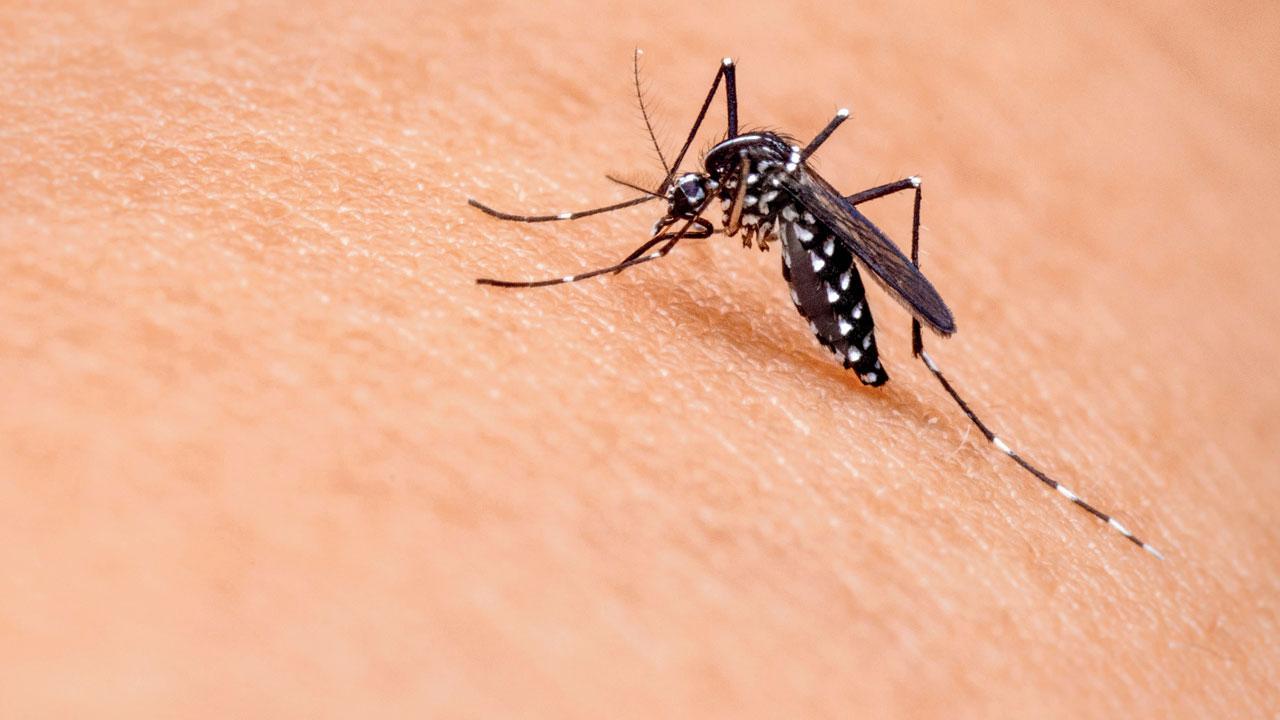City reports notable rise in dengue incidents compared to previous years, prompts vigilant measures by health authorities

The health department inspected 3,61,820 houses in the city between July 9 and 16. Representation pic
Mumbai’s monsoon season has brought about unusual weather patterns, resulting in a shift in the city’s dengue reporting trends. Between July 1 and 16, the city reported 264 dengue cases, compared to 353 cases in June. This is a noticeable increase when compared to last year’s figures of 39 cases in June and 61 cases in July.
It’s important to note that all of these dengue cases were reported on an outpatient basis, and no admissions were required. Dr Dakhsa Shah, head of BMC’s health department, stated, “We are closely monitoring the rising cases and taking appropriate action.” As part of dengue control activities, the department inspected 3,61,820 houses in the city between July 9 and 16.
Dr Shah further informed that they detected and destroyed 4,298 dengue mosquito breeding sites. Additionally, there has been an increase in other monsoon-related ailments. So far in July, there have been 355 cases of malaria, 104 cases of leptospirosis, 932 cases of gastroenteritis, 76 cases of hepatitis, 10 cases of chikungunya, and 52 cases of H1N1.
In July 2022, the numbers were as follows: 563 malaria cases, 65 leptospirosis cases, 679 gastro cases, 65 hepatitis cases, 2 chikungunya cases, and 105 H1N1 cases. The rise in cases is partly attributed to an increase in reporting units from 22 to 880, which include BMC dispensaries, BMC hospitals, HBT clinics, additional private labs, and private hospitals.
A previous report by mid-day highlighted other contributing factors, such as contaminated BMC water in certain areas leading to an increase in gastro-related ailments. Moreover, 93% of malaria cases are due to Plasmodium vivax, while 5% are caused by Plasmodium falciparum, both of which are parasites responsible for the disease in humans. Plasmodium falciparum is considered more dangerous and can lead to severe complications.
Relationship between rain patterns and dengue Dr Pradip Awate, former State Surveillance Officer for epidemic diseases, pointed out that the delay in rains and subsequent patterns can influence the prevalence of diseases like dengue. He said, “Water scarcity can lead to water storage in societies, creating breeding grounds for mosquitoes.”
He also mentioned that heavy rains can wash away mosquito breeding sites, which is why dengue cases tend to rise in September and October. However, as of now, there have been no heavy rains in the city. Additionally, numerous public and private doctors interviewed in the past stated that construction sites are major mosquito breeding spots, and the increase in dengue cases could be linked to extensive construction activities.
“Dengue can be considered an urban phenomenon because it is in urban areas where frequent development works take place, such as metro or monorail projects, road construction, and building construction. These sites pose potential mosquito breeding sites and are a challenge for the public health department,” added Dr Awate.
264
Dengue case between July 1 and 16
 Subscribe today by clicking the link and stay updated with the latest news!" Click here!
Subscribe today by clicking the link and stay updated with the latest news!" Click here!










